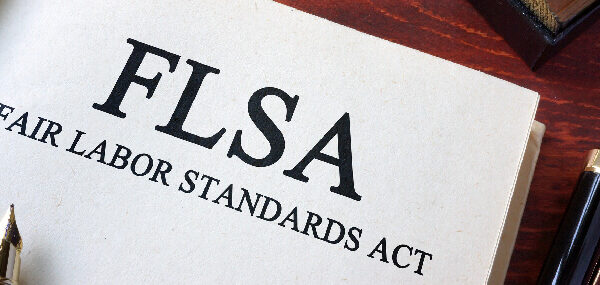With the 2016 Presidential campaign well underway, the issue of immigration continues to grab headlines.
While legal/illegal immigration is a personal issue for many individual voters, it is also an important employment issue.
Illegal immigrants, of course, cannot legally work in the U.S.
Even some legal immigrants, including the spouses of many legal workers, are prohibited from employment.
Individuals who cannot legally work in the U.S. are known as unauthorized workers.
Under the Immigration Reform and Control Act, it is illegal for U.S. employers to knowingly hire or use an unauthorized worker.
Most Wisconsin employers know that a new hire must verify his or her identity and work authorization.
This is accomplished through completion of federal Form I-9, and by the employee’s providing to the employer certain required documents of the employee’s choosing.
The precise documents which the employee can choose to provide can be confusing. A chart in the I-9 instructions divides them into Columns A, B, and C.
The employee must provide:
one document from:
Column A (such as passport, permanent resident card, employment authorization document with photo),
or one each from:
Column B (such as driver’s license, ID card, voter registration card, tribal document)
and
Column C (such as unrestricted social security card, birth certificate, employment authorization document, certain identification cards).
The laws surrounding the I-9 process have created a Goldilocks scenario.
First, employers must complete the I-9 within the employee’s first three days of employment.
Failing to complete the I-9 within this period may result in first offense penalties from $110 to $1,100 per form.
Further, asking for information before an applicant is “hired” could subject the employer to discrimination claims, based on citizenship or immigration status, from unsuccessful candidates.
Second, even if the I-9 is timely completed and filed, the employer may be subject to additional scrutiny.
For example, the U.S. Citizenship and Immigration Services or Social Security Administration may notify the employer that information in the government’s database does not match that provided on the I-9.
An employer should closely follow the letter’s instructions to see, for example, if the discrepancy is the result of a clerical error.
If the issue does not resolve, the employer should carefully re-determine the employee’s work authorization.
The employer must do so without being viewed as discriminating.
When it comes to immigration, the I-9 Form is not a simple administrative document.
Your FOS attorney can help you navigate the I-9’s requirements and help with any problems which may arise regarding it.




